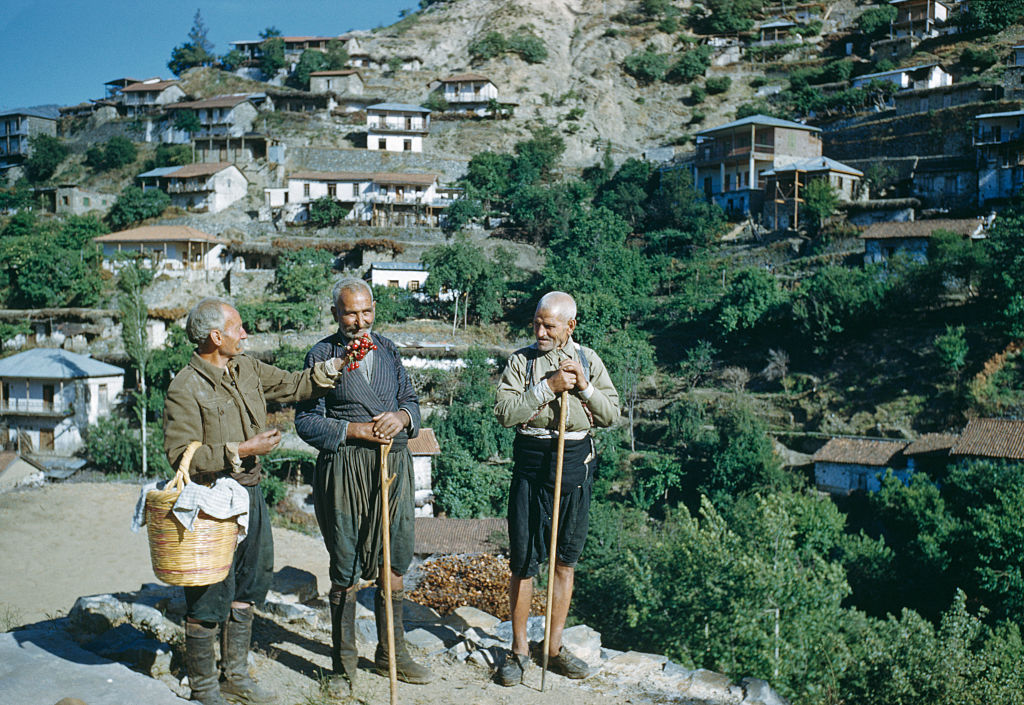
English is an extensive language, but there are some things we just don’t have words for. Susie Dent takes a look at ten of her favourite ‘untranslatables’.
When it comes to linguistic gaps – concepts or emotions that really ought to have a name but somehow don’t – I would be the first person to refer you to the historical dictionary. There you’ll find hundreds of answers to the question ‘Why isn’t there a word for that?’. What do you call looking longingly at someone else’s chips, for example? That’s groaking. Or the act of spitting at someone or something in contempt, as I was once asked? That is to conspue.
Sometimes, though, we just have to bow to the majesty of other tongues, which manage to pithily convey things in a single word when there really is no English equivalent. Words such as the following, picked from my favourite ‘untranslatables’, which range from the light-hearted to the wistful and profoundly deep.

iarmhaireacht [ee-wire-acht]
This hauntingly beautiful Irish word is defined by the documentary maker Manchán Magan as ‘the loneliness you feel at cockcrow, when you are the only person awake’. Iarmhaireacht follows on from the anxiety that you feel in the darkness before dawn, with the same pang of disconnection and unease.
Tidsoptimist [tidz-op-ti-meest]
Are you someone who always insists that they will arrive on time, only to be late every time? This overconfidence in punctuality makes you, in Swedish, a Tidsoptimist or 'time-optimist'. A simple word perhaps, but one sorely needed as we constantly rage against the clock.
Waldeinsamkeit [vuld-ine-zum-kite]
As an antidote, why not take a walk in the forest and drink in the quiet solitude? There is something special about being on your own beneath a canopy of trees, and German captures such seclusion perfectly with Waldeinsamkeit: literally ‘forest aloneness’.

iktsuarpok [eet-so-ahr-pok]
English has as yet no term for the fidgety restlessness we feel when anticipating someone’s arrival. Happily, the Inuit language of Inuktitut does, with ‘iktsuarpok’, which describes the mix of anxiety and excitement that defines the act of waiting.
shibui [si-boo-ee]
The Japanese aesthetic of shibui is all about simple and unobtrusive beauty. It is a quiet state of being that shuns ostentation and embraces subtlety. Crucially, such beauty also improves with age: shibui is a smile-wrinkled face or a time-honed piece of wood.
l’appel du vide [l’app-ell du veed]
Most of us have experienced this emotion, even if we didn’t know what to call it. Its name in French translates as ‘the call of the void’. This is the knowledge, as you stand on the edge of a cliff, that you could actually jump if you wanted to, or that you only have to turn your steering wheel a fraction to drive into oncoming traffic. Thankfully, most of us resist the call, and it is believed that by contemplating oblivion and then rejecting it, we are actually embracing life.
sprezzatura [sprets-a-tu-ra]
‘What: this old thing?’. Such might be a typical response to any compliment on an item of clothing that you pretend to have just thrown on but actually thought about very carefully. This, in Italian, is sprezzatura, a studied kind of nonchalance that implies not a single bead of sweat has been exerted in achieving something quite clever. In modern times, it has also come to embrace a kind of aesthetic rebellion, such as a watch worn over a shirt cuff. Throughout, the air is one of carefully constructed insouciance.

umarell [ooma-rel]
If you think sprezzatura is highly specific, then consider the umarell, a word coined by the writer Daniel Mosotti for the elderly men who never fail to gather around a construction site and offer their own commentary on proceedings as they stand in leisure and watch.
gigil [gig-ill]
On the face of it, the Tagalog word gigil is wonderfully sweet, for it describes the irresistible desire to squeeze something cute – as when a grandparent tightly squeezes their grandchild’s cheek whilst uttering cooing noises. Gigil has an edge, however, for it also conveys a lack of self-control and what psychologists know as ‘cute aggression’ – squeezing someone until it positively hurts.
ranço [ruhn-so]
We all have one – or more: an irrational dislike of someone who really is entirely innocuous, but we just can’t help ourselves. In the slang of Brazilian Portuguese, this kind of inexplicable aversion that never quite shifts is known as ranço, ‘rancid’, as though our resentment festers away within without our ever knowing why.


